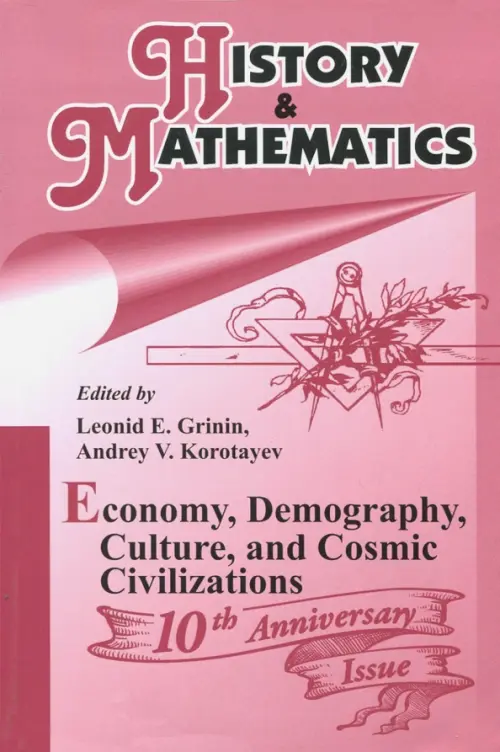
History & Mathematics: Economy, Demography, Culture, and Cosmic Civilizations. Yearbook
The present Yearbook (which is the sixth in the series) is subtitled Economy, Demography, Culture, and Cosmic Civilizations. To some extent it reveals the extraordinary potential of scientific research. The common feature of all our Yearbooks, including the present volume, is the usage of formal methods and social studies methods in their synthesis to analyze different phenomena. In other words, if to borrow Alexander Pushkin's words, 'to verify the algebra with harmony'. One should note that publishing in a single collection the articles that apply mathematical methods to the study of various epochs and scales - from deep historical reconstruction to the pressing problems of the modern world - reflects our approach to the selection of contributions for the Yearbook. History and Mathematics, Social Studies and formal methods, as previously noted, can bring nontrivial results in the studies of different spheres and epochs.
This issue consists of three main sections: (I) Historical and Technological Dimensions includes two papers (the first is about the connection between genes, myths and waves of the peopling of Americas; the second one is devoted to quantitative analysis of innovative activity and competition in technological sphere in the Middle Ages and Modern Period); (II) Economic and Cultural Dimensions (the contributions are mostly focused on modern period); (III) Modeling and Theories includes two papers with interesting models (the first one concerns modeling punctuated equilibria apparent in the macropattern of urbanization over time; in the second one the author attempts to estimate the number of Communicative Civilizations).
We hope that this issue will be interesting and useful both for historians and mathematicians, as well as for all those dealing with various social and natural sciences.



 Каталог товаров broE.ru
Каталог товаров broE.ru